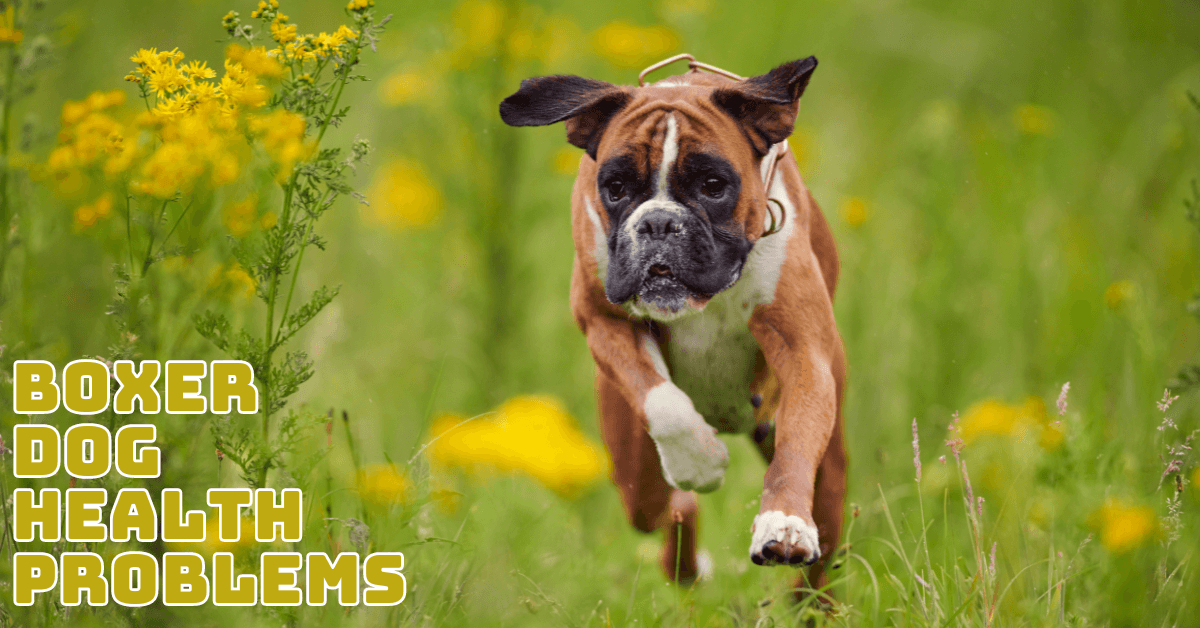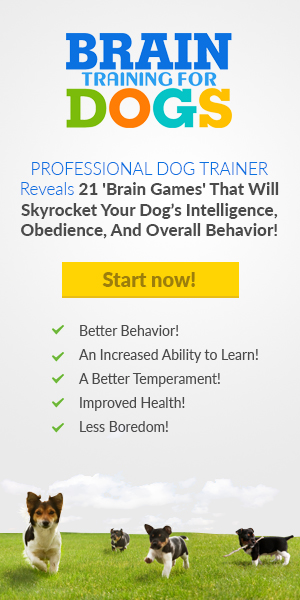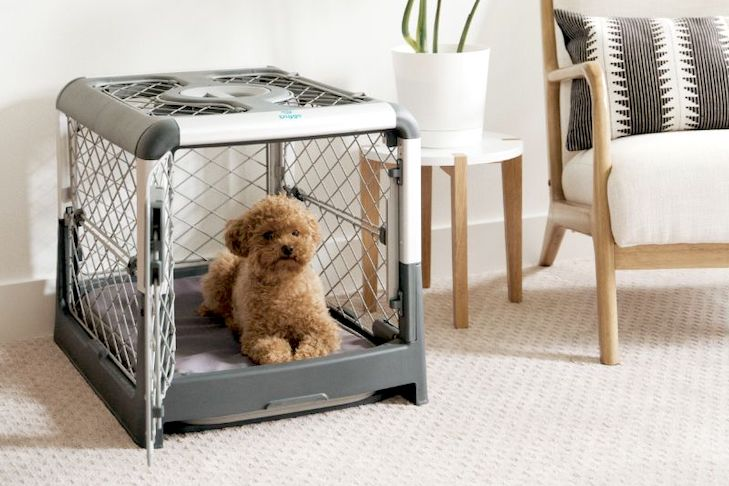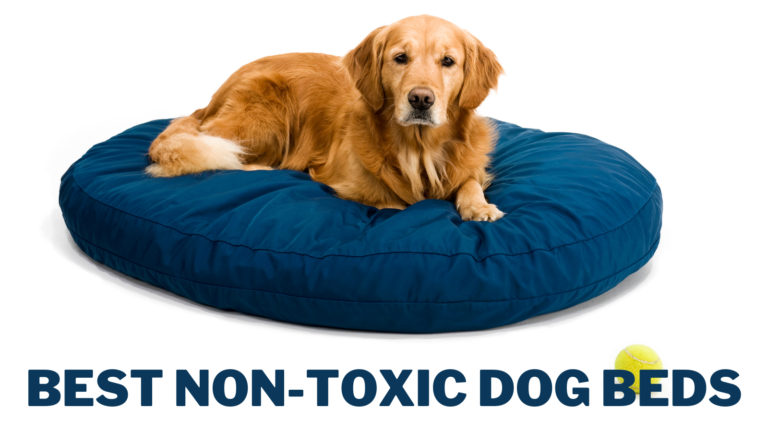Boxer Dog Health Problems
Boxer Dog Health Problems: Essential Insights For Responsible Care
Boxer dogs are known for their playful and loyal nature, but like all breeds, they face health challenges. Understanding common boxer dog health problems is crucial for keeping these loyal and playful companions healthy and happy.
In this article, we’ll explore the most prevalent health concerns in Boxers, providing insightful knowledge and advice to help you maintain your cherished pet healthy and happy. You can ensure your furry friend's long, vibrant life with the right care and awareness.

Boxer Dog Health Problems
Boxer dogs are beloved for their energetic and affectionate nature but are also predisposed to several health problems that owners should be aware of. Understanding these common issues can help you proactively ensure your Boxer’s well-being. Here are some prevalent health problems in Boxer dogs:
1. Boxer Cardiomyopathy
Boxers are particularly susceptible to arrhythmogenic right ventricular cardiomyopathy (ARVC), a serious heart condition that impairs the heart’s ability to pump blood efficiently. This disease affects the right ventricle of the heart, causing irregular heartbeats and, in severe cases, can lead to sudden death.
Symptoms Of Boxer Cardiomyopathy
- Fainting (Syncope): Boxers with ARVC may faint, especially after exercise or excitement, due to insufficient blood flow.
- Irregular Heartbeats (Arrhythmias): A stethoscope or ECG can detect palpitations or abnormal heart rhythms.
- Exercise Intolerance: Affected dogs may be reluctant to exercise or tire easily.
- Sudden Death: In severe cases, ARVC can cause sudden cardiac arrest without prior symptoms.
Treatment Of Boxer Cardiomyopathy
- Medication: Anti-arrhythmic drugs like sotalol or mexiletine are commonly prescribed to manage abnormal heart rhythms.
- Lifestyle Modifications: Reducing stress and engaging in less intense exercise can help lower the chance of fainting or passing away unexpectedly.
- Regular Monitoring: Routine ECGs, Holter monitoring, and echocardiograms are essential to monitor heart function and adjust treatment as needed.

2. Cancer In Boxer Dogs
Boxers are particularly susceptible to certain types of cancer, including mast cell tumours, lymphoma, and hemangiosarcoma.
Cancer is one of the most serious Boxer dog health problems, making early detection and prompt treatment vital for better outcomes.
Symptoms Of Cancer In Boxer Dogs
- Mast Cell Tumors Appear as raised lumps on the skin that may change in size or bleed. If they release histamine, they can cause itching, redness, and gastrointestinal symptoms.
- Lymphoma: Often presents as swollen lymph nodes, usually around the neck, behind the knees, or in the armpits. Symptoms may include lethargy, weight loss, and decreased appetite.
- Hemangiosarcoma: This aggressive cancer typically affects the spleen, liver, or heart and may not show obvious symptoms until advanced. Signs include sudden collapse, pale gums, and abdominal swelling.
Treatment Of Cancer In Boxer Dogs
- Surgery: Removal of tumours is often the first line of treatment, especially for mast cell tumours and localized hemangiosarcoma.
- Chemotherapy: Used to manage lymphoma and as an adjunct treatment for other cancers. It can help prolong life and improve quality of life.
- Radiation Therapy: Sometimes recommended for inoperable tumours or as a follow-up to surgery.
- Monitoring and Palliative Care: Dogs with this condition may live longer if they receive supportive care, pain treatment, and routine veterinary examinations.
3. Canine Hip Dysplasia
A hereditary disorder called hip dysplasia affects how the hip joint develops, resulting in an incorrect fit between the ball and socket. It is a common health problem in Boxer dogs that can lead to joint instability, arthritis, and reduced mobility over time.
Symptoms Of Canine Hip Dysplasia
- Difficulty Rising: Affected dogs may struggle to get up from a lying or sitting position.
- Lameness: Limping or favouring one hind leg is common, especially after exercise.
- Reluctance to Exercise: Dogs may show reluctance to run, jump, or climb stairs due to pain.
- “Bunny Hopping” Gait: Some dogs may move their hind legs together, resembling a hopping motion, to avoid discomfort.
- Decreased Muscle Mass: Muscle loss around the hips and thighs may be noticeable in severe cases.
Treatment Of Canine Hip Dysplasia
- Weight Management: Keeping your Boxer at a healthy weight reduces joint stress and helps alleviate symptoms.
- Joint Supplements: Omega-3 fatty acids, chondroitin, and glucosamine can all help to maintain healthy joints and lessen inflammation.
- Physical Therapy: Therapeutic flexibility and muscle strength.
- Pain Rel can help maintain joint flexibility and muscle strength. Medication: Your vet can prescribe non-steroidal anti-inflammatory drugs (NSAIDs) and other pain relief medications.
- Surgery: In severe cases, surgical options like hip replacement or femoral head osteotomy (FHO) may be considered to improve quality of life.

4. Hypothyroidism In Boxer Dogs
Hypothyroidism is a common endocrine disorder in Boxers, caused by the underproduction of thyroid hormones. This hormonal imbalance affects the dog’s metabolism and can lead to physical and behavioural changes.
Hypothyroidism is one of the Boxer dog health problems that can cause significant metabolic and behavioural changes but is manageable with proper treatment.
Symptoms Of Hypothyroidism In Boxer Dogs
- Weight Gain: One common symptom is unexplained weight gain despite following a normal diet and exercise regimen.
- Lethargy: Affected dogs often become unusually tired, sleep more, and show less interest in activities they once enjoyed.
- Skin and Coat Issues: Dry, flaky skin, hair loss (particularly around the tail and trunk), and a dull coat are typical symptoms.
- Cold Intolerance: Dogs with hypothyroidism may seek places and shiver more frequently.
- Behavioural Changes: Some dogs may exhibit anxiety, depression, or increased irritability.
Treatment Of Hypothyroidism In Boxer Dogs
- Thyroid Hormone Replacement: The primary treatment involves daily administration of synthetic thyroid hormone (levothyroxine) to restore hormone levels.
- Regular Monitoring: Blood tests are necessary to monitor hormone levels and adjust medication dosage as needed.
- Diet and Exercise: Even when the illness is managed with medication, eating a balanced diet and regular exercise can help reduce weight and enhance general health.
- Skin Care: Medicated shampoos and topical treatments may be recommended for dogs with skin issues.
5. Bloat (Gastric Dilatation-Volvulus) In Boxer Dogs
Bloat, or gastric dilatation-volvulus (GDV), is a critical condition affecting deep-chested breeds like Boxers. It happens when gas builds up in the stomach and twists, cutting off the blood supply and leading to shock if not treated promptly. Understanding the symptoms and seeking immediate veterinary care can be life-saving.
Symptoms Of Bloat (Gastric Dilatation-Volvulus) In Boxer Dogs
- Swollen Abdomen: A visibly distended or bloated stomach is a primary sign.
- Drooling: Excessive salivation can indicate discomfort or nausea.
- Restlessness: Affected dogs may pace, appear anxious, or seem unable to find a comfortable position.
- Attempts to Vomit: Dogs may retch or try to vomit but produce little to no substance.
- Rapid Breathing or Increased Heart Rate: Increased respiratory or heart rates may occur due to distress.
Treatment Of Bloat (Gastric Dilatation-Volvulus) In Boxer Dogs
- Immediate Veterinary Care: GDV is a medical emergency; immediately take your dog to a veterinarian.
- Stabilization: Initial treatment may involve decompressing the stomach through a tube or needle to relieve gas buildup.
- Surgery: To stop a recurrence, surgery is frequently required to untwist the stomach and fix it in place (a procedure known as gastroplexy).
- Post-Operative Care: To track progress and avoid issues, follow-up treatment is crucial.

6. Canine Degenerative Myelopathy
The gradual neurological condition known as degenerative myelopathy (DM) in dogs damages the spinal cord, resulting in hind limb paralysis and lack of coordination.
Degenerative myelopathy is a serious boxer dog health problem leading to hind limb weakness and requires early recognition and supportive care.
Symptoms Of Canine Degenerative Myelopathy
- Hind Limb Weakness: Dogs may initially show signs of weakness in the back legs, which can lead to difficulty standing or walking.
- Loss of Coordination: Affected dogs may exhibit a wobbly or unsteady gait, often crossing their hind legs.
- Dragging of the Hind Feet: As the disease progresses, dogs may drag their paws, leading to sores or injuries.
- Muscle Atrophy: Over time, muscle loss in the hind limbs may become apparent as the disease advances.
- Paralysis: In the later stages, dogs may become completely paralyzed in the hind legs.
Treatment Of Canine Degenerative Myelopathy
- Physical Therapy: Regular exercise, hydrotherapy, and specialized physical treatment can preserve muscle strength and mobility.
- Assistive Devices: Mobility aids such as harnesses or wheelchairs can support dogs as they lose strength and coordination.
- Pain Management: Your veterinarian may recommend drugs to control discomfort and preserve a high quality of life.
- Environmental Modifications: Creating a safe and accessible home environment can help dogs navigate their surroundings more easily.
7. Allergies In Boxer Dogs
Boxers are susceptible to various allergies, including food, environmental, and skin. These allergic reactions can lead to multiple symptoms that affect their quality of life.
Understanding the signs and implementing effective management strategies are crucial for keeping your Boxer comfortable.
Symptoms Of Allergies In Boxer Dogs
- Itching and Scratching: Excessive scratching, licking, or biting at the skin often indicates an allergic reaction.
- Ear Infections: Frequent ear infections, characterized by redness, swelling, or discharge, can indicate allergies.
- Gastrointestinal Issues: Vomiting, diarrhea, or gas may result from food allergies or intolerances.
- Skin Inflammation: Red, inflamed skin or hot spots can develop as a response to allergens.
- Watery Eyes and Sneezing: Environmental allergies can cause symptoms similar to hay fever in humans.
Treatment Of Allergies In Boxer Dogs
- Identifying Triggers: Work with your veterinarian to perform allergy testing and identify specific allergens.
- Dietary Changes: For food allergies, switching to a hypoallergenic diet or eliminating certain ingredients can help alleviate symptoms.
- Medications: Antihistamines, corticosteroids, or other medications may be prescribed to reduce itching and inflammation.
- Regular Bathing: Hypoallergenic shampoos can help soothe irritated skin and remove allergens.
- Environmental Control: Minimize exposure to environmental allergens by keeping your home clean, using air purifiers, and avoiding certain outdoor activities during peak pollen seasons.

8. Boxer Colitis (Histiocytic ulcerative colitis)
Boxer colitis, or histiocytic ulcerative colitis, is a notable health problem in boxer dogs that causes chronic gastrointestinal issues and discomfort.
Early diagnosis and management are crucial for their well-being. This condition results in chronic gastrointestinal problems, leading to significant discomfort and health concerns. Maintaining the quality of life for affected pets requires early diagnosis and proper therapy.
Symptoms Of Boxer Colitis (Histiocytic ulcerative colitis)
- Chronic Diarrhea: Frequent loose stools, often with blood or mucus, are a hallmark of the condition.
- Weight Loss: Affected dogs may lose weight due to malabsorption and decreased appetite.
- Abdominal Pain: Dogs may show discomfort, such as whining, hiding, or adopting a hunched posture.
- Increased Flatulence: Excessive gas can occur alongside gastrointestinal disturbances.
- Vomiting: Some dogs may also experience intermittent vomiting.
Treatment Of Boxer Colitis (Histiocytic ulcerative colitis)
- Special Diet: A veterinary-recommended diet that is easily digestible and low in allergens can help manage symptoms.
- Medications: Anti-inflammatory drugs, antibiotics, or immunosuppressive medications may be prescribed to control inflammation and bacterial overgrowth.
- Probiotics: Adding probiotics to the diet can support gut health and restore normal intestinal flora.
- Regular Monitoring: Regular veterinary examinations are crucial for monitoring the illness and modifying the course of treatment as necessary.
9. Aortic Stenosis
Aortic stenosis is a congenital heart defect commonly seen in Boxers. An aortic valve narrowing characterizes it. This blockage prevents blood from leaving the heart and reaching the rest of the body, which can cause several cardiovascular problems.
Aortic stenosis is a serious congenital heart defect that contributes to the list of common Boxer dog health problems, requiring early veterinary intervention for better management and prognosis.
Symptoms Of Aortic Stenosis
- Fainting (Syncope): Boxers may faint, especially during exercise or excitement, due to insufficient blood flow.
- Exercise Intolerance: Affected dogs often tire easily and may resist moving.
- Labored Breathing: Difficult or rapid breathing can occur, particularly during exertion.
- Heart Murmur: A veterinarian may detect a characteristic heart murmur during a routine examination.
- Sudden Death: In severe cases, aortic stenosis can lead to sudden cardiac arrest without prior symptoms.
Treatment Of Aortic Stenosis
- Medication: It may be necessary to prescribe beta-blockers or other drugs to treat symptoms and enhance heart health.
- Regular Monitoring: Routine veterinary checkups, including echocardiograms and ECGs, are essential for assessing heart function and progression of the condition.
- Surgery: In severe cases, surgical intervention such as balloon valvuloplasty may be considered to widen the narrowed valve.

10. Demodectic Mange in Boxer Dogs (Demodicosis)
Demodectic mange, caused by the Demodex mite, is a skin condition commonly affecting Boxers, particularly puppies and dogs with compromised immune systems.
This condition can lead to significant skin issues and discomfort. Early recognition and treatment are crucial for effective management.
Symptoms Of Demodectic Mange in Boxer Dogs (Demodicosis)
- Hair Loss: Demodectic mange is characterized by patches of hair loss, often starting around the eyes, muzzle, and ears.
- Skin Redness: Affected areas may appear red and inflamed due to irritation and secondary infections.
- Scabs and Crusts: The skin may develop scabs, crusts, or lesions as the condition progresses.
- Itching: While demodectic mange is often less itchy than other forms of mange, some dogs may still show signs of mild itching or discomfort.
- Foul Odor: Affected areas can smell unpleasant due to bacterial infections.
Treatment Of Demodectic Mange in Boxer Dogs (Demodicosis)
- Medicated Baths: Regular baths with medicated shampoos can help reduce mite populations and soothe the skin.
- Topical Treatments: Prescription topical medications may target the mites directly.
- Oral Medications: For more severe cases, oral drugs like ivermectin or milbemycin oxime may be recommended to get rid of the mites.
- Immune Support: Ensuring a healthy diet and managing underlying health issues can support the immune system and help resolve the condition.
11. Corneal Dystrophy In Boxer Dogs
An inherited eye condition known as corneal dystrophy is a significant health issue in Boxer dogs. It is characterized by abnormal deposits in the cornea, leading to cloudiness or opacity.
While this condition is generally painless, it can significantly impact vision. Regular veterinary eye checkups are essential for monitoring and managing the condition effectively.
Symptoms Of Corneal Dystrophy In Boxer Dogs
- Cloudy Corneas: Affected dogs may display cloudy or opaque areas in one or both eyes.
- Vision Changes: Dogs may experience difficulty seeing, especially in low-light conditions, although some may not show noticeable signs of vision impairment.
- Tear Production Changes: Some dogs may increase or decrease tear production, potentially leading to dryness or excessive tearing.
- Eye Irritation: While corneal dystrophy is not painful, secondary irritation or infection can arise.
Treatment Of Corneal Dystrophy In Boxer Dogs
- Regular Monitoring: Routine eye examinations by a veterinarian can help track the condition's progression.
- Lubricating Eye Drops: Artificial tears or lubricating drops may be recommended to alleviate dryness and irritation.
- Surgery: In severe cases where vision is significantly impaired, surgical options like corneal transplantation may be considered.
- Avoiding Eye Irritants: Protecting your dog from irritants like dust or smoke can help minimize discomfort.

Best Tips For Boxer Dog Health Maintenance
Although playful and loving pets, boxer dogs need regular care to stay healthy. Following essential health maintenance tips ensures your Boxer lives a long, happy life. Here are some detailed guidelines to help you keep your Boxer in top shape:
1. Routine Vet Visits
Regular checkups are crucial for early detection of health issues like cardiomyopathy and cancer, which are common in Boxers. Annual heart and cancer screenings, routine vaccinations, and blood work are recommended.
2. Balanced Nutrition
Feed your Boxer a balanced diet of protein, fats, and carbohydrates. Avoid using fillers such as soy and maize, and look for dog foods that mention meat as the main ingredient. If your vet recommends supplements for joint health, consider them.
3. Daily Exercise
Boxers are energetic dogs that need plenty of exercise to stay healthy. Aim for an hour or more of daily action, such as plays, walks, or agility drills. This helps prevent obesity, reduces stress, and strengthens their muscles and joints.
4. Dental Care
The health of your Boxer depends on good oral hygiene, which is sometimes disregarded. Give them dental chews to help prevent gum disease and reduce plaque buildup. You should also brush your boxer's teeth several times a week with dog toothpaste.
5. Heart Health Monitoring
Boxers are prone to heart conditions like arrhythmogenic right ventricular cardiomyopathy (ARVC). Be vigilant for symptoms like fainting or lethargy. Regular ECGs and heart ultrasounds can help with early detection and management.
6. Skin And Coat Care
Boxers have short coats but can be prone to skin issues and allergies. Check them regularly for rashes, bumps, or dry patches. Use hypoallergenic shampoos and regular grooming to keep their coat healthy.
7. Parasite Prevention
Use vet-approved preventative treatments to protect your Boxer from fleas, ticks, and worms. This keeps your dog comfortable and healthy while halting the spread of disease.
8. Mental Stimulation
Boxers are intelligent and curious dogs that need mental activity to avoid boredom and anxiety. Provide interactive toys, training exercises, and socialization opportunities.
These tips can help your Boxer lead a healthy and vibrant life. Regular care and attention go a long way in preventing health issues and ensuring your loyal companion thrives.
Conclusion
In conclusion, understanding the various Boxer dog health problems, such as cardiomyopathy, allergies, and hip dysplasia, is crucial for owners to ensure their dogs lead happy and healthy lives.
By being aware of conditions such as cardiomyopathy, allergies, and hip dysplasia, owners can take proactive steps to monitor and manage their dogs’ health.
Regular veterinary checkups, early detection, and appropriate treatment are essential in ensuring a happy, healthy life for Boxers. Owners can enjoy many joyful years with their beloved companions with proper care and attention.
I trust you enjoyed this article on the Boxer Dog Health Problems: Essential Insights For Responsible Care. Please stay tuned for more blog posts soon. Take care!
JeannetteZ
>>>Please click here to read my article on A Full Overview Of Dogs And Their Activity<<<
My #1 Dog Training Recommendation
Your Opinion Is Important To Me
Do you have thoughts, ideas, or questions? I would love to hear from you. Please leave me your questions, experience, and remarks about this Boxer Dog Health Problems: Essential Insights For Responsible Care article in the comments section below. You can also email me at Jeannette@Close-To-Nature.org.
Disclosure
This post may contain affiliate links. I earn from qualifying purchases as an Amazon Associate and other affiliate programs. Please read my full affiliate disclosure.
You might also enjoy these blog posts:
Barking Dog Solutions – Ultimate Training
Aggressive Dog Solutions – Ultimate Training
How To Train Your Puppy To Use Outside
Special Tips For Growing Sugar-Apple In Containers
Best Essential Oils For Panic Attacks







